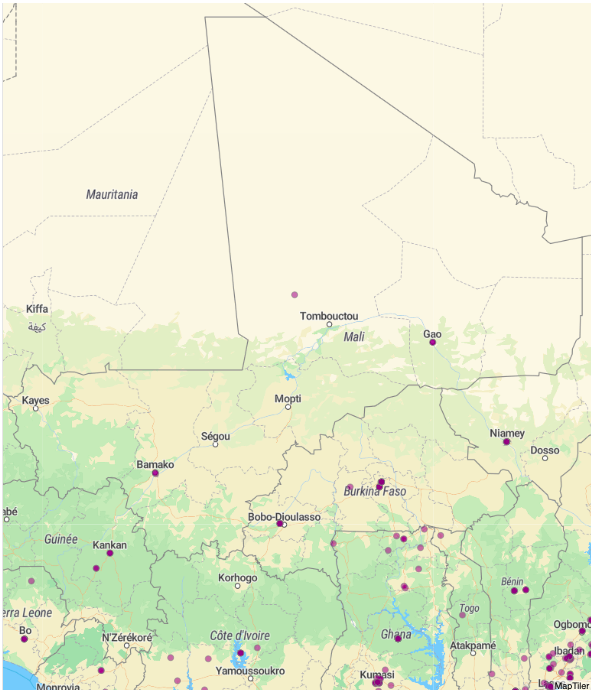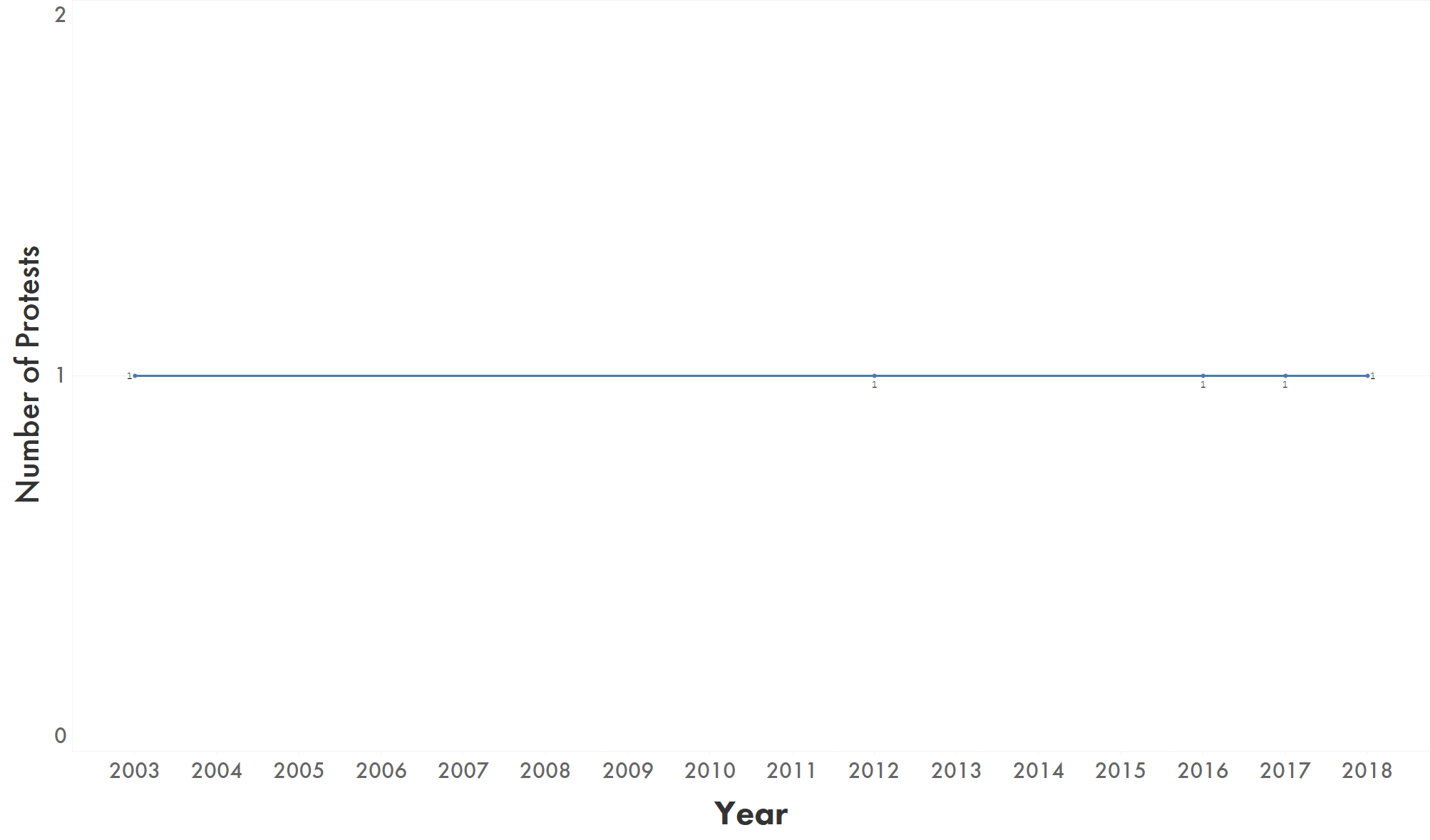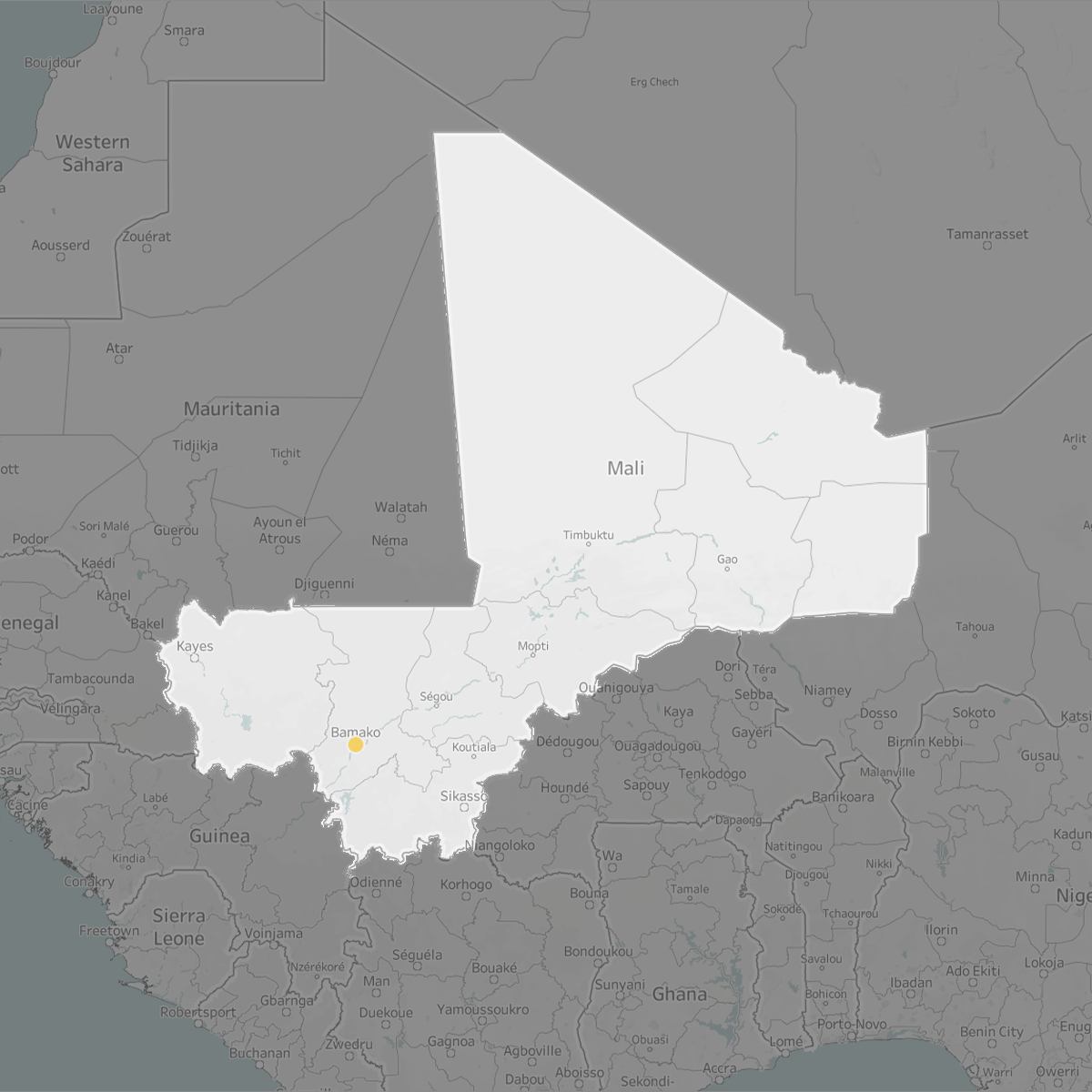Mali
This northern country is home to 12 million people. The capital city is Bamako and is home to 1.4 million people. The country many ethnic groups, the main distinction being between the Berbers, including the Tuareg and the Moors, and black ethnic groups including the Mande and the Bambara. Most Malians are religiously Muslim, though Islam has not been as prominent in Mali's political landscape. Ethnic diversity has been a source of a longstanding conflict. In 1991 the Tuareg rebelled, seeking autonomy from the central government. The government squashed the rebellion driving 80,000 Tuareg into other countries. Many Malians emigrate to neighbor Cote d'Ivoire and also to France. The autocratic rule of Moussa Traore, who came to power through a military coup in 1969, dominated Mali's political life for 23 years. In 1979 he established single-party civilian rule, though Traore ruled with violence, squashing several coup attempts during his rule. During mass protests in 1991, Traore was arrested, and an interim administration headed by Lieutenant-Colonel Amadou Touman Toure replaced him. In 1992 Toure established new constitutions and multiparty elections, along with a victory by Konare, who became president. Konare ruled until 2012, when he was deposed by a coup who accused him of failing to combat Tuareg rebels.

DATA VISUALIZATIONS


PROTESTS
Mali-June-2012
Gao, Gao
Several youths were killed after rebels opened fire on a group of people protesting the killing of a local officials. (Primary Source)
Mali-July-2016
Gao, Gao
Violent youth led protests in the street of Mali occurred in protest of the Algiers Peace Agreement which placed former armed rebels in power as interim government officials. (Primary Source)
Mali-February-2018
Northern Mali, Northern Mali
Over 400 schools close after Islamic extremists came to village schools and threatened to kill teachers if they didn't leave. The extremists want Koranic schools, not French ones. (Primary Source)
Mali-October-2003
Bamako, University of Mali
Students & Lecturers go on strike to demand the payment of government stipends and salaries. (Primary Source)
Mali-December-2017
Bamako, University of Bamako
Students protest before the university faculty council elections (Primary Source)